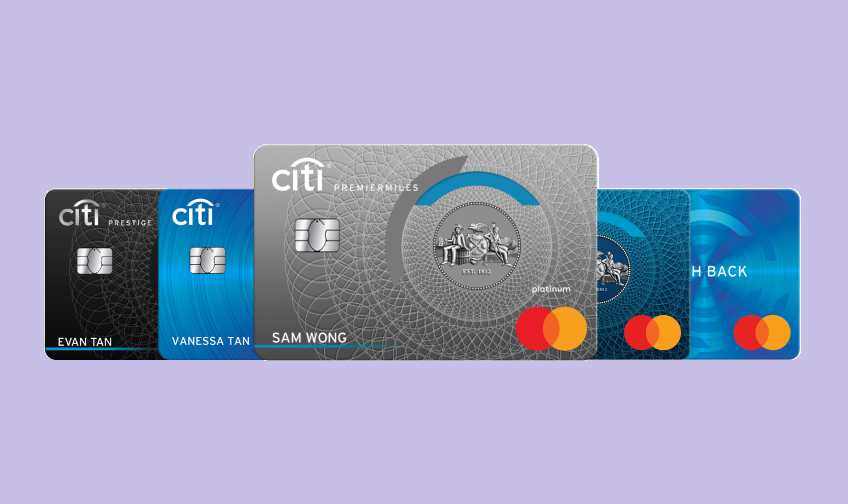The pros and cons of using credit cards to earn airline miles

Understanding the Benefits of Credit Cards for Travelers
For many globetrotters, credit cards serve not just as a means of payment but as a gateway to exciting adventures. By strategically using credit cards that offer airline miles, travelers can turn everyday purchases—such as groceries, gas, and dining out—into tickets to their next getaway. This mechanism of earning rewards allows individuals to save up and accumulate miles toward flights that might otherwise stretch their budget or remain a distant dream.
Pros of Using Credit Cards for Airline Miles
- Opportunity to earn miles on daily expenses: Utilizing a rewards card for routine spending can accumulate significant miles over time. For example, some cards offer 2x or 3x miles per dollar spent on certain categories, such as dining and travel. This means that a family who spends $500 monthly on groceries could potentially earn 6,000 miles annually if using a card that awards 1.2 miles per dollar.
- Sign-up bonuses can provide a significant mileage boost: Many credit cards entice new customers with substantial sign-up bonuses. For instance, a card might offer 50,000 miles after spending $3,000 in the first three months. This bonus alone is often enough for a round-trip flight within the U.S., making it an attractive option for anyone looking to expand their travel possibilities.
- Additional benefits like travel insurance and priority boarding: Credit cards often come with perks that enhance the travel experience. Certain cards provide complimentary travel insurance, which can cover delays, cancellations, or lost luggage. Furthermore, many travel rewards cards also offer priority boarding and free checked bags, making the airport experience smoother and more enjoyable.
Cons to Consider
- High-interest rates can negate the value of earned miles: While the lure of accumulating miles is strong, it’s essential to consider the card’s interest rate. Many rewards cards come with high Annual Percentage Rates (APRs). If a balance is carried over month-to-month, interest payments may quickly erode the benefits gained from the miles earned.
- Potential for overspending and accumulating debt: The ease of swiping a credit card can lead to unplanned expenditures. Without mindful budgeting, it’s easy to indulge beyond one’s means, resulting in debt that can outweigh the cash value of the rewards accrued. Travelers need to establish a disciplined approach to spending to prevent potential pitfalls.
- Restrictions and expiration policies on miles can lead to disappointment: Many airline miles programs have complex rules regarding mileage expiration and redemption. For instance, some airlines require travelers to fly or earn additional miles within a certain period to retain their rewards. This can lead to frustration if travelers are not fully aware of these stipulations.
Navigating the landscape of airline miles can be both rewarding and challenging. For those who take the time to understand the benefits and drawbacks of credit card programs, the potential for enriching travel experiences grows immensely. It is crucial to delve deeper into the specifics of various airlines’ mileage programs to optimize rewards while ensuring responsible financial behavior. As you explore how to effectively wield credit cards in your travel plans, you may unlock new opportunities that elevate your travel game to new heights.
DISCOVER MORE: Click here to learn how to enroll
Maximizing Rewards: The Upsides of Earning Airline Miles
The allure of airline miles is undeniable, particularly for those with a passion for exploration. The benefits of utilizing credit cards to accumulate these miles can significantly enhance a traveler’s experience. Here are some key advantages that make using credit cards for airline miles an attractive proposition.
Unlocking The Full Potential of Your Spending
- Flexible earning potential: With many credit cards offering different categories for earning miles, travelers can select a card that aligns with their lifestyle. For example, a card that awards 3x miles for dining and 2x miles for travel expenses allows foodies and frequent travelers to maximize their earnings effortlessly. Furthermore, some credit cards also offer bonus miles for selected retailers, allowing users to earn rewards on specific purchases.
- Flexible redemption options: While many people associate airline miles with flights, these rewards often offer greater flexibility than one might think. Many airlines now allow travelers to redeem miles for things like hotel stays, car rentals, and even experiences. This versatility means that rewards can be used in multiple ways, thereby enriching the overall travel experience.
- Building loyalty to favorite airlines: Earning miles with a specific airline can lead to long-term benefits, such as elite status that comes with perks like free upgrades, lounge access, and increased baggage allowances. This is especially beneficial for business travelers who frequently fly with the same airline. By concentrating spending on one travel rewards card, individuals can leverage their loyalty for enhanced travel experiences.
The prospect of earning miles on everyday purchases is certainly enticing, but potential pitfalls require equal attention for a balanced view. Understanding these downsides is crucial; otherwise, the thrill of accumulating miles could lead to unexpected challenges.
Evaluating Potential Drawbacks
- Annual fees can cut into savings: While many credit cards offer attractive rewards programs, some impose high annual fees that can undermine the value of the miles earned. It’s essential for consumers to weigh these fees against the benefits they expect to receive from the card. A deeper understanding of a credit card’s fee structure can help make informed decisions.
- Challenging mile redemption processes: Despite the allure of airline miles, redeeming them can be less straightforward than it appears. Many airlines have black-out dates or limited availability for flights using miles, often leaving travelers disappointed when they cannot book their desired trip. They may discover that the miles earned do not translate as easily into tickets as they had hoped, leading to a sense of frustration.
- Complicated point systems: Each airline has its own unique program with varying rules and regulations. Moreover, some credit cards partner with multiple airlines, creating a convoluted system that can confuse even the savviest travelers. Deciphering which miles are best used for specific airlines and when can lead to anxiety, potentially causing missed opportunities.
In summary, while earning airline miles through credit cards can open up a world of travel possibilities, it’s crucial to consider both the advantages and the constraints involved. By keeping these factors in mind, travelers can make informed financial decisions that align with their travel aspirations.
DISCOVER MORE: Click here to find out how to enroll
Understanding the Balance: The Downsides of Accumulating Airline Miles
While using credit cards to earn airline miles can elevate the travel experience, it’s essential to navigate the accompanying challenges with prudence. Understanding these drawbacks will empower travelers to wield their credit tools responsibly and effectively.
Managing Financial Implications
- Interest rates can be burdensome: If the balance on a credit card is not paid in full each month, interest charges can quickly accumulate, often eclipsing the value of the airline miles earned. This becomes particularly concerning as many credit cards carry interest rates that can soar above 20%. Calculating whether the benefits of earning miles outweigh any interest accrued is essential for financial well-being.
- Risk of overspending: The convenience of earning rewards may inadvertently encourage increased spending. Consumers might justify impulse purchases with the promise of earning more miles, leading to financial strain and unmanageable debt. Establishing a budget and being disciplined about spending is crucial to prevent losing sight of one’s financial goals.
- Decreased credit score risk: High credit utilization rates—when a consumer uses a large percentage of their available credit—can negatively impact one’s credit score. Frequent charges to a credit card, even if paid off each month, can affect credit metrics. Understanding the implications of credit utilization is vital for ensuring a healthy financial profile, especially when seeking loans or mortgages in the future.
Exploring Strategic Limitations
- Time-limited promotions and mileage expiration: While many airlines have programs to earn points, they often establish time limits or conditions under which miles can expire. These limitations can catch travelers off guard, especially if they’ve invested time accumulating miles only to find that they are no longer valid. Staying abreast of the specific terms of credit card rewards programs and the airlines’ policies is paramount to making the most of earned miles.
- Limited travel rewards during peak seasons: Even when miles are available for redemption, travelers may find that their options are restricted during peak travel seasons. Airline policies may lead to more expensive mileage redemptions during holidays or events, negating any perceived savings. Planning ahead and understanding travel peaks can mitigate dissatisfaction when rewards aren’t as abundant as anticipated.
- Complexity of benefit tracking: As multiple credit cards may be used to collect miles across several airlines, keeping track of each program’s individual benefits can become daunting. To maximize rewards, travelers must monitor expiration dates, tier status, and usage, which can lead to missed opportunities if one isn’t organized. Implementing a dedicated system for tracking points can prove invaluable in maximizing the benefits of airline miles.
Understanding the balance of earning airline miles through credit cards requires acknowledging both the lucrative possibilities and the potential pitfalls. Being mindful of these aspects allows travelers to utilize their credit cards more effectively, ensuring they can take advantage of the rewards without succumbing to the associated risks.
DON’T MISS OUT: Click here to find out more about INSS payments</a
Final Thoughts on Earning Airline Miles with Credit Cards
In assessing the advantages and disadvantages of using credit cards to accumulate airline miles, travelers must adopt a careful and informed approach. The potential for significant rewards, such as free flights and upgrades, can be enticing; however, the associated risks require equal attention. The reality is that the journey towards maximizing these rewards can often be fraught with complexities.
Paying off balances in full each month is essential to truly reap the benefits without falling into debt traps created by high interest rates. Setting a strict budget is crucial to avoid the pitfalls of overspending just to chase after those miles. Furthermore, understanding the impact of credit utilization on your credit score adds another layer to the conversation, especially for consumers who may be navigating future financial endeavors.
Moreover, travelers must stay vigilant when it comes to reward terms and conditions, such as mileage expiration and restrictions during peak seasons. A well-thought-out strategy, encompassing a reliable tracking system for miles and an awareness of promotional timelines, can help prevent missed opportunities and ensure that the miles accumulated have the intended impact on travel experiences.
Ultimately, the decision to use credit cards for airline miles should be approached with a clear understanding of both the perks and the potential pitfalls. Researching various credit card offers, evaluating personal spending habits, and consistently monitoring rewards can transform these financial tools into a means of unlocking exciting travel possibilities. With the right balance, credit cards can indeed become a passport to exceptional adventures worldwide.



